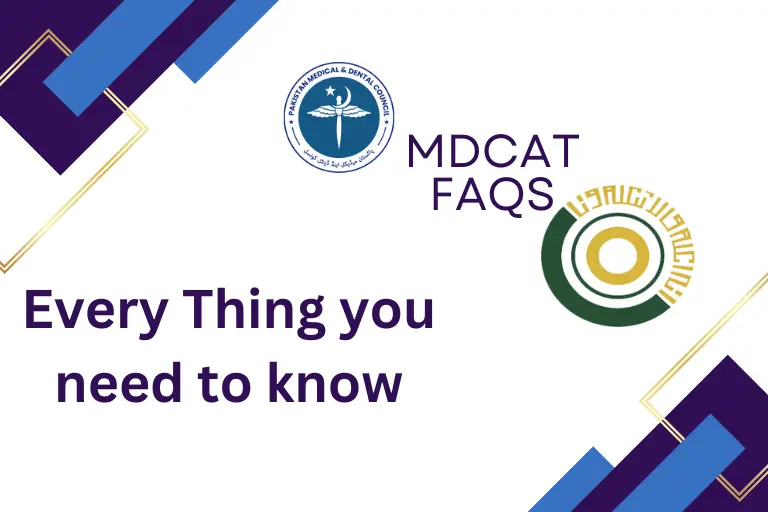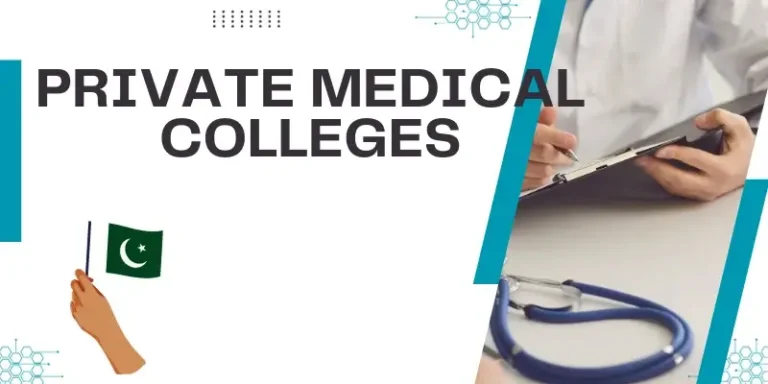Pakistan Medical Commission and Dental Council (PMDC)
You wish to study medicine in Pakistan, then. That’s fantastic; working in medicine may be fulfilling. You will first need to survive years of rigorous training and study. You will need to interact with the Pakistan Medical Commission and Dental Council, or PMDC, to do that. In Pakistan, the PMDC is in charge of all medical licenses and education. They choose who goes into medical schools, establish the curricula, provide license tests, and control medical practice.
Put another way, you should become acquainted with the PMDC as they will have a significant impact on your medical career. This article will provide you with an overview of the PMDC, its functions, its significance for medical education and licensure in Pakistan, and the potential effects of its judgments on you as a future physician. By the time it’s done, you’ll know exactly how to navigate Pakistan’s medical education system and launch your medical career.
The Pakistan Dental and Medical Council (PMDC): What Is It?
The Pakistan Medical and Dental Council (PMDC) is in charge of overseeing medical and dental education in Pakistan. In order to guarantee the best standards in Pakistani medical and dental education, the PMDC was established in 1962.
Apart from establishing global standards for certifications in these fields, the PMDC is in charge of identifying and approving medical and dental establishments. In order for physicians, dentists, and other healthcare professionals to practice medicine in Pakistan, they must also register with them. You need to be registered with the PMDC in order to practice medicine or dentistry in Pakistan.
The PMDC has the right to take disciplinary action against any registered physician, dentist, or medical facility that disobeys its code of ethics or does not adhere to particular requirements to protect patient safety. Penalties, registration cancellation, and suspension are examples of punitive measures.
How to Complete PMDC Registration and Renewal Online
To finish your online PMDC registration or renewal, take the following actions:
Collect the Necessary Records
To upload, you’ll need digital versions of the following documents:
| Your certificate or degree in medicine |
| a certified copy of your medical school transcript |
| A duplicate of your identification card |
| pictures of the size of passports |
| Evidence of completion of home employment or internship (for new registrations only) |
Create an Account and Login
To make an account, go to pmdc.org.pk and click “Register Now”.
Complete the Application.
Your name, date of birth, address, and contact information are among the personal facts that the online application will need. It will also inquire about specifics on your training and education in medicine. Give precise information while taking your time.
Publish the Necessary Documents
When the program prompts you to upload digital files, carefully scan or take a picture of your papers. Verify that the text is readable and the photos are clear.
Cover the registration cost.
You can use a debit or credit card to make online payments for the registration and renewal costs. The PMDC website lists the costs for each registration and renewal category.
Check the Status of Your Application
You may check the progress of your registration or renewal on the PMDC website once your application is complete and the money has been received. Usually, the procedure takes four to six weeks. Your name will be added to the PMDC’s medical practitioner registration list, marking the completion of your registration or renewal.
Required Documents for PMDC Registration
To register with the PMDC, you will need to provide several important documents. These establish your identity, education, and professional experience.
Identity Documents
You will need to provide proof of your identity, age, and nationality. This typically includes
| A copy of CNIC |
| Passport-size photographs |
Educational Documents
It is essential to present your medical or dental school transcripts to register for PMDC. You’ll require:
| Copies of your transcripts and MBBS, BDS, or another medical/dental degree |
| A certificate of internship completion from a recognized teaching hospital |
You will also require an equivalency certificate for your degree from the Higher Education Commission (HEC) if you obtained your education elsewhere.
Professional Experience (if applicable)
If you have professional experience, submit evidence such as
| Experience certificates from employers listing job titles, dates employed, and duties |
| Membership letters from medical associations or societies, if any |
For the PMDC to assess applications effectively, extremely particular paperwork is required. Before you apply, make sure you are aware of all the documentation requirements to prevent any delays. Check one more to make sure your full name, birthdate, and other personal details are on every document. Arrange your belongings in the exact order that the PMDC application dictates.
Fees and Registration Form for PMDC
You must apply with the PMDC to register as a medical or dental practitioner in Pakistan. What you should know about the registration form and related costs is provided here.
PMDC Enrollment Form
The PMDC website offers a registration form for download. Along with information about your qualifications in medicine or dentistry, you will need to provide personal information such as your name, address, and date of birth. When completing the form, make sure you have copies of your transcript, degree, and any supporting documentation available.
Verify that all of the information on the form is accurate before submitting. Inaccurate or partial form filling may be the reason for the registration process delay. It’s best to take your time and ensure that every piece of information is connected and typed accurately.
Registration and annual renewal fees
The charges associated with PMDC registration are as follows:
| For dentists and medical professionals, | The initial registration fee is Rs. 8,000 and Rs. 10,000, respectively. |
| Annual renewal fees for dentistry and medical professionals | Rs. 4,000 and Rs. 5,000, respectively. |
| Late charge for renewals filed after the deadline | is 10,000 rupees |
To continue practicing in Pakistan, you must renew your PMDC registration after the first five-year period. To prevent late fines and make sure your registration is complete, you must renew on time each year.
Fees can be paid in person at PMDC offices in Islamabad and Karachi or online through the PMDC website. Make sure you receive an official receipt for any payments made.
FAQ
What is the price of renewal and registration?
The registration and renewal fees are decided by the PMDC and are subject to change regularly. Currently, dentists must pay an initial registration cost of Rs. 8,000, while doctors must pay Rs. 10,000. The renewal fee is Rs. 5,000 for doctors and Rs. 4,000 for dentists.
What is the duration of the process?
The PMDC checks your information once you submit the necessary paperwork and payments; this process usually takes four to six weeks. Your registration or renewal certificate will arrive in the mail if your application is accepted. The PMDC is attempting to use automation and digitalization to expedite this process.
Do I need to renew my registration?
Yes, to continue practicing medicine or dentistry in Pakistan, you must renew your PMDC registration every five years. If you choose not to renew, your registration will be canceled.
How can I monitor the status of my application?
You may visit the PMDC website or give them a call to find out how your registration or renewal application is progressing. You will receive your documents back with an application number on them. Make sure you always carry this number on you.
Final Thoughts
That concludes it, my friend. Since the PMDC was founded in 1962, a lot has changed. The organization has contributed to the improvement and regulation of medical education standards in Pakistan, despite some conflicts and problems encountered along the route. Notwithstanding the obstacles that lie ahead, hope for the future persists. The PMDC may enhance its credibility as a healthcare standards arbiter by consistently pursuing enhancements and prioritizing openness. It provides medical professionals and students with the comfort that their training and practice adhere to strict guidelines. Patients should also have confidence in the treatment and counseling they get. Taking everything into account, the PMDC has a noble objective, and let us hope that it can complete this important task for the coming generations.
![Top 12 Nursing Colleges in Pakistan [ List ] | 2025-2026 1 Top nursing colleges in pakistan](https://medicaladmissionpk.com/wp-content/uploads/Top-nursing-colleges-in-pakistan-768x384.jpg)

